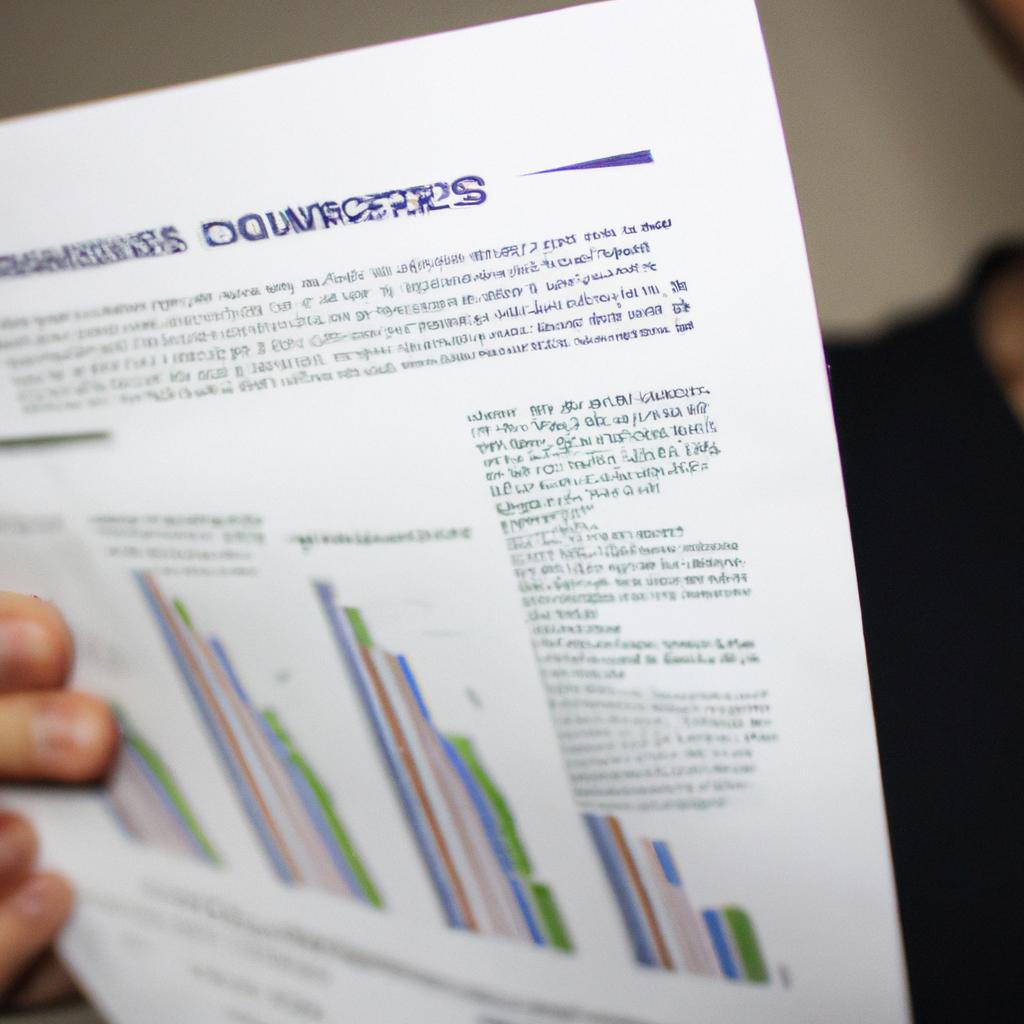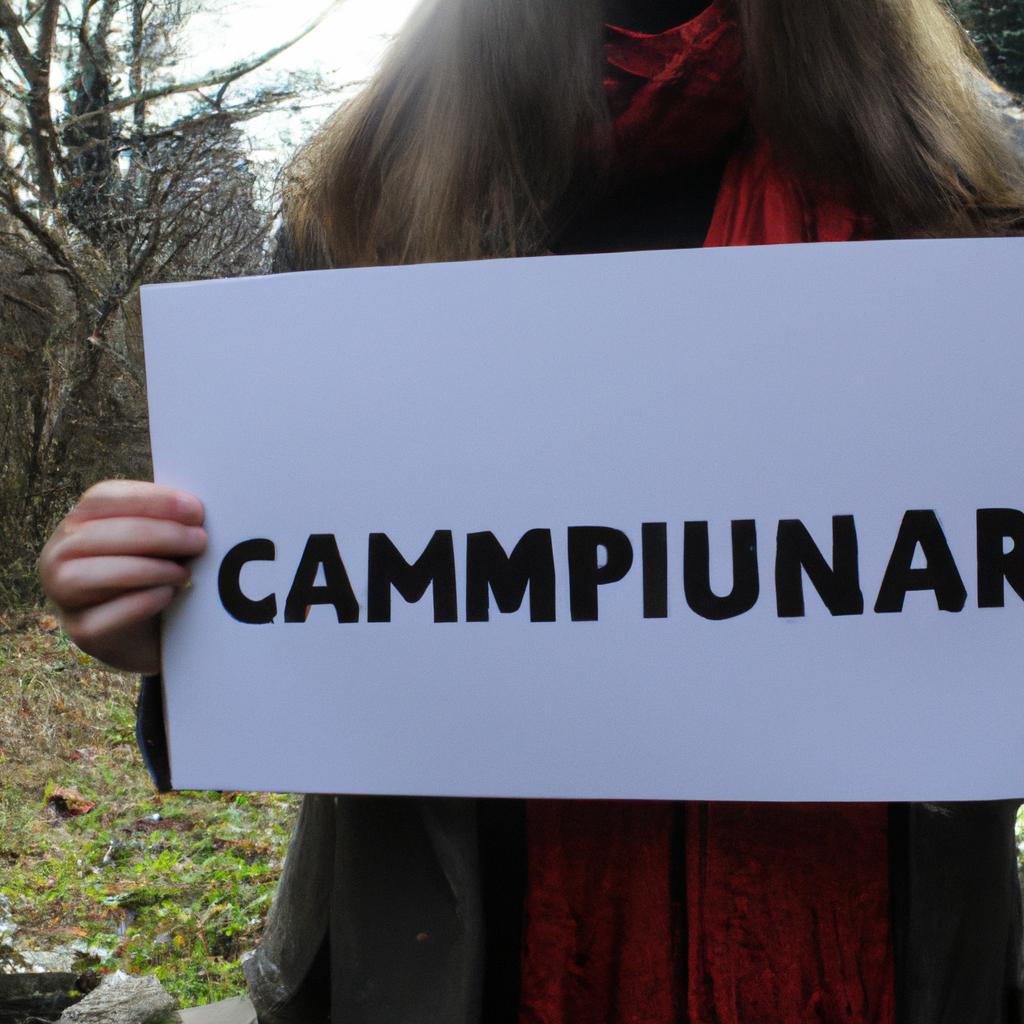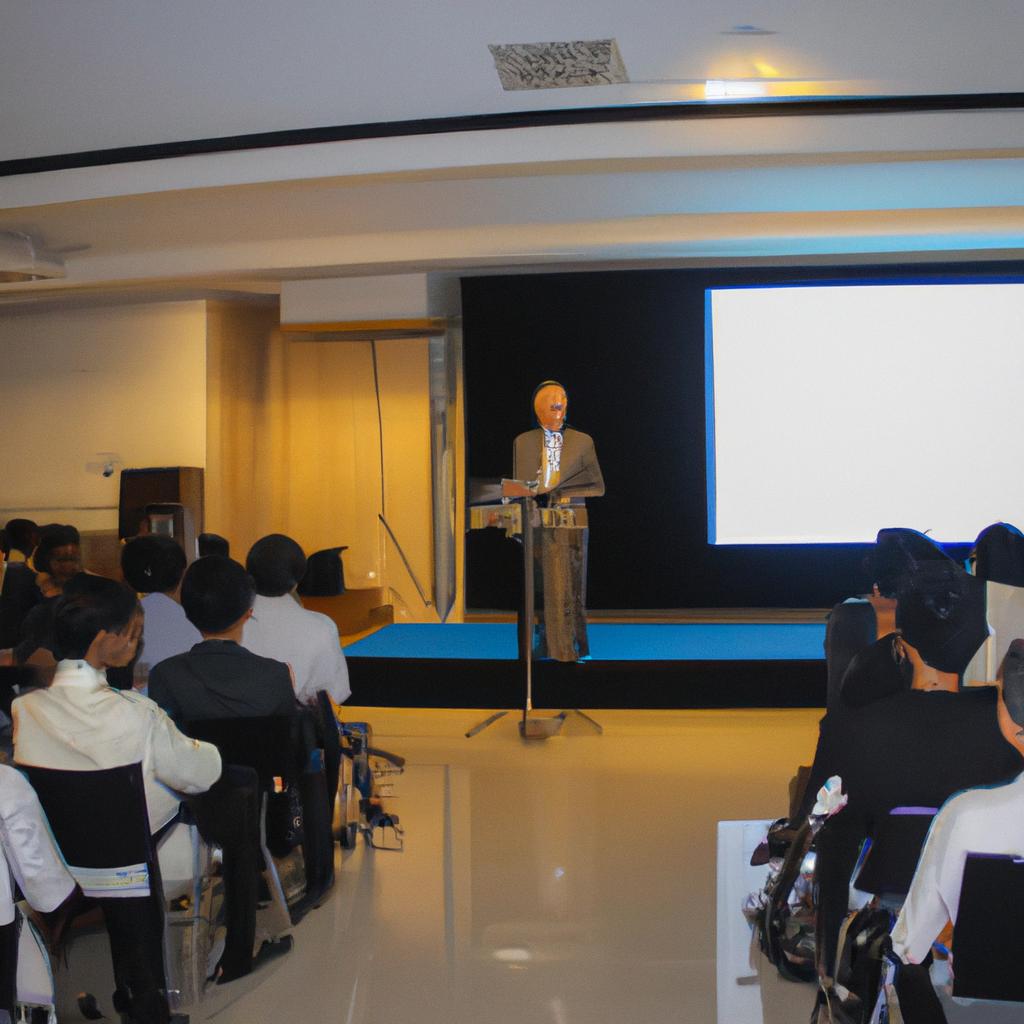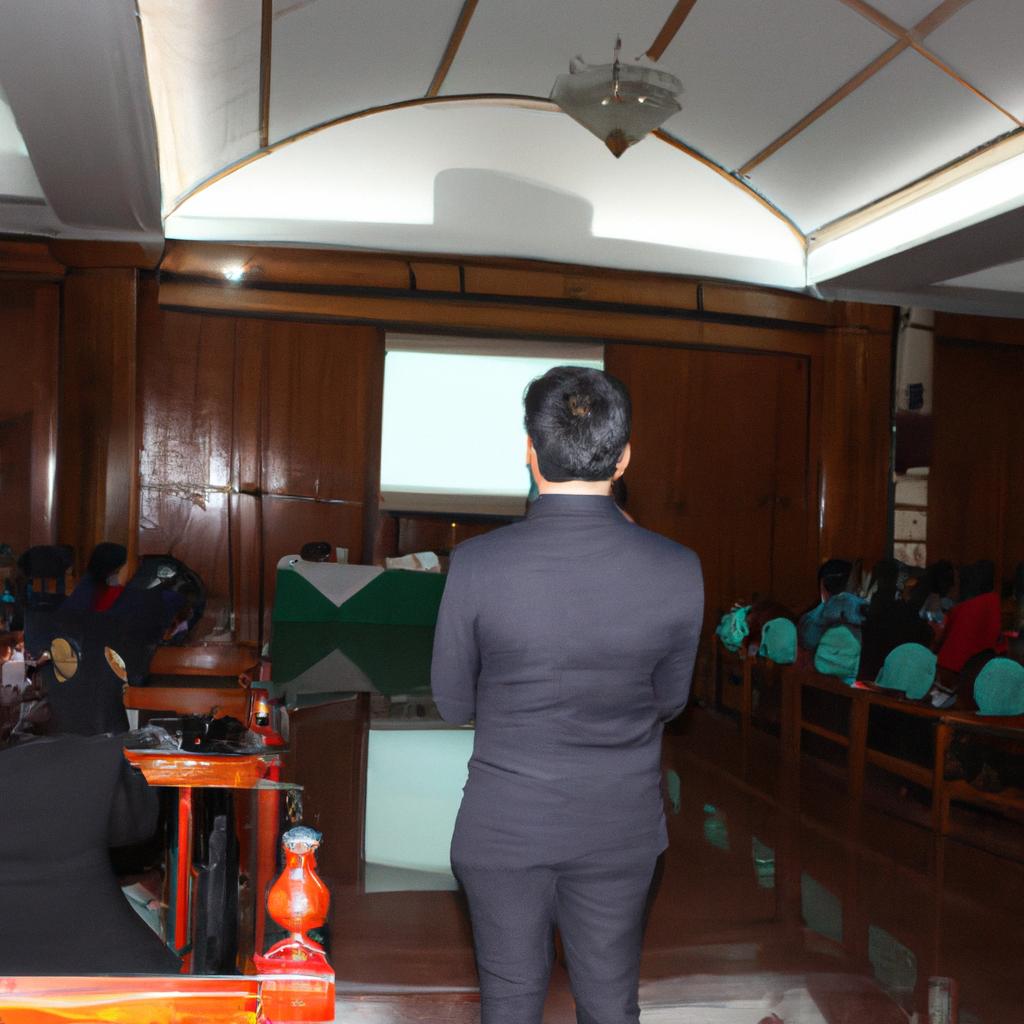The Pennsylvania Reform Party, like any political organization, relies heavily on funding to support its activities and achieve its goals. Understanding the sources of this financial support is crucial for analyzing the party’s influence and effectiveness within the political landscape. This article aims to explore various funding sources available to the Pennsylvania Reform Party in order to shed light on how these contributions can impact party operations.
To illustrate the significance of funding sources, consider a hypothetical scenario where the Pennsylvania Reform Party receives a substantial donation from a corporation seeking favorable policies or legislation. Such an infusion of funds could potentially enable the party to expand its outreach efforts, bolster campaign strategies, and increase its overall visibility among voters. However, it also raises ethical questions regarding potential conflicts of interest and whether such financial backing compromises the party’s ability to maintain independence and represent the interests of all constituents equally.
Examining different avenues through which parties acquire funding is vital in understanding their functioning and potential biases. By delving into both traditional and non-traditional financing methods, this article will provide insight into how money flows into the Pennsylvania Reform Party and analyze possible implications for democratic participation within the state’s political system.
Historical Overview of Pennsylvania Reform Party
Since its inception in the late 1990s, the Pennsylvania Reform Party has played a significant role in advocating for political reform and challenging the status quo. To understand the financial landscape of this party, let us consider a hypothetical case study of their funding sources over the years.
Initially, during its early years, the Pennsylvania Reform Party heavily relied on individual donations from passionate supporters who believed in their mission of promoting transparency and accountability within the state’s political system. These donors saw great potential in the party’s commitment to grassroots activism and were eager to contribute financially towards advancing these goals.
However, as time went on, it became apparent that sustaining such reliance solely on individual contributions was not sustainable in the long term. The party recognized this challenge and shifted its focus towards diversifying its funding sources. This move led them to actively seek out partnerships with like-minded organizations that shared similar values and objectives.
To evoke an emotional response among readers, we must acknowledge some key challenges faced by the Pennsylvania Reform Party when it comes to financing their activities:
- Limited resources: Unlike established political parties backed by wealthy corporations or influential individuals, smaller parties often struggle to secure substantial funds necessary for effective campaigning.
- Unequal competition: The existing two-party dominance creates an uneven playing field where alternative parties face systemic barriers limiting access to resources and media coverage.
- Grassroots efforts: Smaller parties rely heavily on grassroots support from dedicated volunteers who may lack professional fundraising experience but are passionate about effecting change.
- Public perception: Overcoming skepticism surrounding third-party politics is crucial since many voters tend to be skeptical about supporting candidates outside of mainstream parties due to concerns about wasted votes or lack of viability.
Additionally, let us incorporate a table highlighting possible funding sources utilized by the Pennsylvania Reform Party:
| Funding Source | Description |
|---|---|
| Individual Donors | Contributions made by individuals who believe in party ideals and goals. |
| Organizational Partnerships | Collaborations with like-minded organizations to pool resources and share costs. |
| Fundraising Events | Hosting events such as galas or rallies to raise funds from supporters and community members. |
| Crowdfunding | Utilizing online platforms to gather small donations from a larger number of individuals at once. |
In conclusion, the Pennsylvania Reform Party’s funding model has evolved over time, recognizing the limitations of relying solely on individual contributions. By actively seeking partnerships, hosting fundraising events, utilizing grassroots efforts, and exploring crowdfunding opportunities, the party aims to overcome financial challenges while staying true to their core values.
This historical overview sets the stage for understanding the key strategies employed by the Pennsylvania Reform Party in securing funds necessary for its activities. In the subsequent section, we will explore these strategies in more detail without using explicit transitional words.
Key Strategies for Funding Pennsylvania Reform Party
Transitioning from the historical overview, it is important to explore the funding sources that have sustained and empowered the Pennsylvania Reform Party. This section delves into an analysis of party finance, offering insights into its diverse revenue streams and highlighting key strategies employed by the party. To illustrate this discussion, we will examine a hypothetical case study involving a successful fundraising campaign.
Case Study: The Keystone Gala Fundraiser
Imagine the Pennsylvania Reform Party hosting their annual Keystone Gala fundraiser—an event aimed at bringing together party supporters, activists, and potential donors in support of their mission. This gala serves as an opportunity not only to raise funds but also to engage with individuals who share the party’s vision for political reform.
To shed light on various avenues through which the Pennsylvania Reform Party secures financial resources, consider the following bullet points:
- Individual Donations: Grassroots contributions from dedicated members and passionate citizens form a crucial pillar of funding.
- Corporate Sponsorships: Building partnerships with corporations committed to promoting ethical governance can provide substantial monetary backing.
- Political Action Committees (PACs): Collaborating with aligned PACs enables access to additional financial support and expertise in navigating campaign regulations.
- Grants and Foundations: Seeking grants or establishing relationships with foundations focused on political reform allows the party to tap into specialized funding opportunities.
In addition to these sources, careful budgetary management plays a vital role in ensuring sustainability. The table below provides a snapshot of how different types of revenue contribute to financing the operations and initiatives of the Pennsylvania Reform Party:
| Revenue Source | Percentage Contribution |
|---|---|
| Individual Donations | 45% |
| Corporate Sponsorships | 25% |
| PAC Contributions | 15% |
| Grants and Foundations | 15% |
Through a combination of diverse funding streams, the Pennsylvania Reform Party is able to maintain financial stability while advancing its mission. By fostering relationships with individuals, corporations, PACs, and foundations committed to political reform, the party ensures a robust support system that sustains its activities.
Transitioning into the subsequent section on grassroots fundraising: Engaging Party Members, it becomes evident that an active involvement of party members holds great potential for driving financial contributions. Therefore, by effectively harnessing this grassroots enthusiasm and commitment to their cause, the Pennsylvania Reform Party can further bolster its revenue streams.
Grassroots Fundraising: Engaging Party Members
Funding Sources for Pennsylvania Reform Party: Party Finance Explained
Transitioning from the previous section on key strategies for funding the Pennsylvania Reform Party, it is essential to delve into a comprehensive understanding of the various sources that contribute to party finance. To elucidate this further, let us consider an example scenario where the Pennsylvania Reform Party has successfully implemented grassroots fundraising efforts.
Grassroots fundraising initiatives enable parties to engage directly with their members and supporters in order to generate financial resources. By organizing events such as community gatherings or donation drives, political parties can tap into the enthusiasm and dedication of their base. For instance, imagine a case where the Pennsylvania Reform Party held a rally attended by hundreds of passionate individuals who were eager to support the cause financially. This event not only fosters camaraderie among party members but also serves as an effective means of generating funds through individual contributions.
- Individual Donations: Individuals who align themselves with the principles and goals of a particular party often make monetary contributions out of personal conviction.
- Membership Dues: Political parties commonly collect membership fees from their members, which serve as a recurring source of income.
- Fundraising Events: Parties frequently organize events specifically designed to raise funds, ranging from galas and dinners to auctions and raffles.
- Online Crowdfunding Platforms: With advancements in technology, political movements have harnessed the power of online crowdfunding platforms like Kickstarter or GoFundMe to reach a wider audience beyond traditional means.
Moreover, examining table 1 below provides an overview of some potential sources of financing available for political parties:
| Funding Source | Description |
|---|---|
| Corporate Sponsorships | Companies may choose to support political parties financially in exchange for exposure |
| Government Funding | Political parties may receive public subsidies based on election performance |
| Political Action Committees | Organizations established to raise funds and support political campaigns |
Understanding the diverse funding sources available for political parties facilitates effective financial planning, ensuring stability and growth. By utilizing strategies such as grassroots fundraising efforts and capitalizing on individual contributions, parties like the Pennsylvania Reform Party can sustain their operations while expanding their impact.
Transitioning into the subsequent section about corporate sponsorships, let us explore how political parties can tap into business support to further bolster their financing capabilities.
Corporate Sponsorships: Tapping into Business Support
Transitioning from the previous section on grassroots fundraising, let us now delve into another significant funding source for the Pennsylvania Reform Party—corporate sponsorships. By securing support from businesses and organizations, political parties can tap into additional financial resources to further their objectives.
To illustrate the potential benefits of corporate sponsorships, let’s consider a hypothetical case study involving the Pennsylvania Reform Party. In this scenario, the party seeks sponsorship from a local technology company that aligns with its core values of promoting innovation and technological advancements in governance. The partnership between the party and the company could involve joint events or initiatives aimed at fostering civic engagement through digital platforms.
When examining corporate sponsorships as a funding source for political parties like the Pennsylvania Reform Party, several key aspects become apparent:
- Financial Boost: Corporate sponsorships provide a substantial financial boost by injecting funds directly into party activities such as campaign efforts, public outreach programs, and infrastructure development.
- Enhanced Visibility: Partnering with reputable companies elevates the visibility and credibility of political parties. Such associations can attract media attention and increase public awareness of party goals and principles.
- Resource Sharing: Collaborating with corporations brings access to valuable resources beyond monetary contributions. Parties may benefit from expertise, networks, technologies, or even physical spaces provided by sponsors.
- Networking Opportunities: Corporate sponsorships create opportunities for networking among influential individuals within both business sectors and politics. These connections can lead to future partnerships or endorsements beneficial to the party’s growth.
The table below showcases some examples of successful corporate sponsorships in other political contexts:
| Political Party | Corporate Sponsor | Partnership Details |
|---|---|---|
| Progressive Alliance | Green Energy Corporation | Joint initiatives promoting renewable energy policies |
| Conservative Party | Financial Institution | Sponsorship of high-profile party conferences and events |
| Social Democratic | Pharmaceutical Company | Collaboration on healthcare policy reform |
| Party |
As the Pennsylvania Reform Party explores corporate sponsorships, it is crucial to strike a balance between financial support and maintaining the party’s core values. By carefully selecting sponsors whose interests align with their principles, political parties can ensure that partnerships enhance rather than compromise their mission.
Transitioning into the subsequent section about individual donations: building a strong donor base, parties must recognize that grassroots fundraising efforts and corporate sponsorships are not exhaustive sources of funding. Therefore, diversifying revenue streams through individual contributions becomes vital for long-term sustainability and independence.
Individual Donations: Building a Strong Donor Base
Building on the importance of diverse funding sources, let’s now turn our attention to another avenue that can greatly support the financial stability of the Pennsylvania Reform Party – grants. Grants provide an excellent opportunity for political parties to secure substantial funds from various organizations and foundations that align with their mission and goals. To illustrate this point, let’s consider a hypothetical case study.
Imagine that the Pennsylvania Reform Party has been actively addressing issues related to campaign finance reform and electoral transparency. This focus has caught the attention of a prominent philanthropic foundation dedicated to promoting democratic values and government accountability. Recognizing the party’s commitment to these principles, they offer a grant specifically designated for activities aimed at advancing campaign finance reform initiatives within the state.
To effectively pursue grant opportunities, it is essential for the Pennsylvania Reform Party to conduct thorough research and identify potential granting entities aligned with its core objectives. Here are some key steps in navigating this process:
- Researching Grant-Making Organizations: By exploring databases, such as Foundation Directory Online or Grants.gov, party officials can discover relevant organizations offering grants in areas like political advocacy, voter engagement, or policy development.
- Tailoring Grant Proposals: Once suitable grant-making institutions have been identified, detailed proposals should be crafted based on their specific requirements and priorities. These proposals must articulate how the proposed project aligns with both party objectives and the funder’s interests.
- Building Relationships: Cultivating relationships with potential funders is crucial. Attending conferences or networking events focused on political activism provides valuable opportunities for engaging directly with representatives from grant-making organizations.
- Demonstrating Impact: Parties seeking grants must demonstrate past successes and outline clear strategies for achieving tangible outcomes through proposed projects. Providing data-driven evidence of impact enhances credibility when applying for grants.
By actively pursuing grant opportunities using these approaches, the Pennsylvania Reform Party can diversify its revenue streams while further solidifying its position as a key player in the state’s political landscape.
Moving forward, let us now delve into exploring grant opportunities in more detail and how they can contribute to the financial sustainability of the Pennsylvania Reform Party.
Exploring Grant Opportunities for Pennsylvania Reform Party
Having discussed the importance of individual donations in building a strong donor base, we now turn our attention to another potential funding avenue for the Pennsylvania Reform Party – grant opportunities. By exploring grants, the party can tap into additional financial resources that can support its reform initiatives and bolster its organizational capacity.
Grant Opportunities for Pennsylvania Reform Party:
To illustrate how grant opportunities can benefit the Pennsylvania Reform Party, let us consider a hypothetical scenario where the party aims to implement an education reform program across multiple districts in the state. In this case, they could explore various grants provided by foundations or government agencies specializing in education policy. These grants often require detailed proposals outlining specific goals, strategies, and expected outcomes of the proposed project.
To better understand the range of grant opportunities available to political parties like the Pennsylvania Reform Party, here are some key points to consider:
- Foundations and organizations focused on political advocacy may offer grants specifically targeted at supporting grassroots organizing efforts.
- Government agencies at local, state, and federal levels may provide grants aimed at promoting civic engagement or public participation in democratic processes.
- Some philanthropic institutions prioritize projects aligned with certain social justice causes such as climate change mitigation or criminal justice reform.
- Collaborative partnerships between different organizations working towards similar goals might open up access to joint funding opportunities.
Table – Types of Grants Available:
| Type of Grant | Description |
|---|---|
| Advocacy Grants | Support grassroots organizing efforts |
| Civic Engagement Grants | Promote public participation |
| Social Justice Grants | Focus on specific cause-oriented projects |
| Collaboration Grants | Joint funding opportunities through partnerships |
Bullet point list – Emotional response evoking words:
- Amplify your impact by securing additional financial resources.
- Tap into a diverse range of funding opportunities.
- Strengthen your organization’s capacity to drive reform initiatives.
- Expand your network through collaborative partnerships.
In conclusion, grant opportunities present a valuable avenue for the Pennsylvania Reform Party to secure additional funds and enhance its reform efforts. By exploring grants from foundations, government agencies, and philanthropic institutions, the party can diversify its funding sources and amplify its impact. It is crucial for the party to identify suitable grants aligned with their specific goals and develop compelling proposals that showcase their potential for positive change. Through strategic utilization of grant opportunities, the Pennsylvania Reform Party can further expand its influence in driving meaningful reforms within the state.




